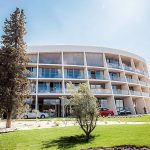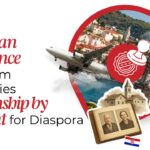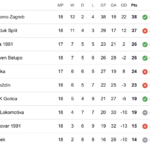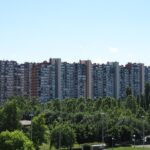April 12, 2019 – Overtourism and heritage, one of the challenges destinations face. The Proceed with Care conference in Sibenik next month will focus on the key issues, with a world-class speaking line up. Meet them.
As previously reported on TCN, an important international conference on the challenges of overtourism and heritage takes place in Sibenik from May 2-5. Sibenik is the ideal location for such a conference, of course, home as it is to two UNESCO World Heritage Sites.
Having introduced the conference in the previous article, it is time to meet the speakers – it is quite an international list.
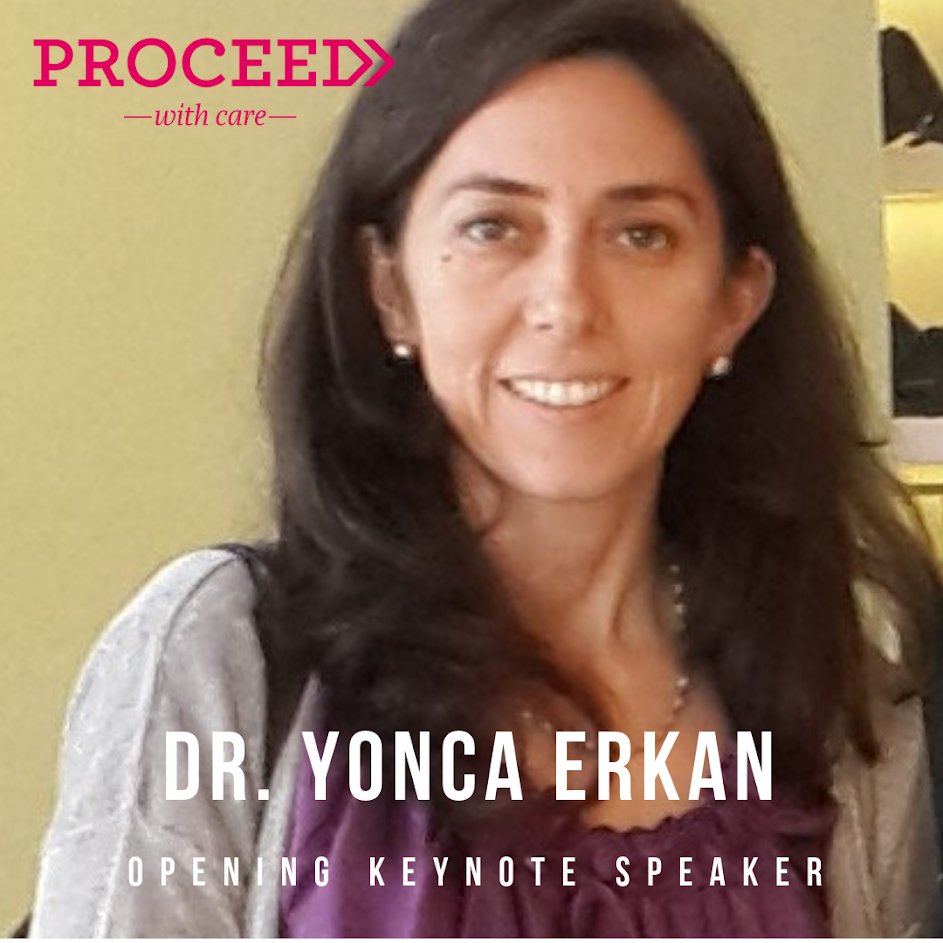
YONCA ERKAN
Dr. Yonca Erkan works as Associate Professor of architecture at the Kadir Has University since 2008, where she is the UNESCO Chair Holder on the Management and Promotion of World Heritage Sites: New Media and Community Involvement. In 2017, she worked as a senior consultant at the UNESCO World Heritage Centre as the HUL/World Heritage Cities Programme Coordinator. She is a jury member of European Union Cultural Heritage – EUROPA NOSTRA Awards in Education, Training and Awareness Raising (Category IV), as well as Heritage in Motion Awards. Dr Erkan was a member of the Turkish National Commission for UNESCO (2010-2014). Her research interests include management of world heritage sites, urban conservation and community involvement. She holds architecture degree from Yıldız Technical University (1993), with a Master’s Degree in Architectural Conservation from the same university (1996) and studied at the Aga Khan Program for Islamic Art and Architecture in Massachusetts Institute of Technology (MIT) and received S.M.Arch.S. Degree (1998) and completed her Ph.D. (2007) at the Istanbul Technical University.
MICHAEL TURNER
Professor Michael Turner is the UNESCO Chairholder in Urban Design and Conservation Studies and heads the Research and Innovation Authority at the Bezalel, Academy of Arts and Design, Jerusalem. In parallel, since 1983 he has a private practice with works in architecture, conservation and urbanism. In research he is involved in urban sustainability, heritage, social inclusion and urban spaces. He is a member of many professional-academic bodies, engaged in many activities at UNESCO and is currently special envoy to the World Heritage Centre Director focusing on Culture for Development and the implementation of the UNESCO Recommendation on Historic Urban Landscapes.
ANTONIO MIGUEL NOGUÉS-PEDREGAL
Prof. Antonio Miguel Nogués-Pedregal, professor of social anthropology at the Universitas Miguel Hernández (Spain) and former Head of the Department of Social and Human Sciences. Since late eighties, his research interests focus on the relationship between tourism, cultural heritage and development in the Mediterranean and Latin America, where he has carried out his fieldwork. He delivers seminars and carried out research stages as Visiting Scholar in different universities: University of Oxford (United Kingdom), KU Leuven (Belgium), Johannes Gutenberg-Universität (Germany), Nova de Lisboa (Portugal) or Univerza v Ljubljani (Slovenia) among many others. He edited «Cultura y turismo» (Signatura ediciones 2003) and «Culture and society in tourism contexts» (Emerald 2012). Some of his scientific articles has been published in English, German and Italian. He has been recently acknowledged as one «of the two most important scholars of the anthropology of tourism in Spain since the 1990s» by the journal Anthropology News 55 (9-10), pp. 31, the bimonthly publication of the American Anthropological Association.
YOEL MANSFELD
Yoel Mansfeld is a Professor of Tourism Planning & Development, a consultant and a trainer based in Haifa, Israel. He holds a PhD from the London School of Economics (LSE), University of London, UK. His main areas of interests include sustainable tourism, cultural tourism; cultural routes; tourism and security; socio-cultural impacts of tourism development; community-based tourism; and religious tourism. He is also the founder and Head of the University of Haifa’s Centre for Tourism, Pilgrimage & Recreation Research (CTPRR) and one of the founding members of the European Cultural Routes Universities Network (EC-RUN) established by the Council of Europe’s European Institute for Cultural Routes. Yoel Mansfeld is also an active member of the UNESCO-UNITWIN net-work on Culture, Tourism & Development.
BOJANA BOJANIĆ OBAD ŠĆITAROCI
Bojana Bojanić Obad Šćitaroci is a professor and doctor of technical sciences in the field of architecture and urbanism. She is a professor at the Faculty of Architecture of the University of Zagreb at the Department of Urban Planning, Spatial Planning and Landscape Architecture and head of a department. She is a professor at Doctoral studies: Architecture and Urbanism, Intensive seminar: SCAPE at Faculty of architecture, University of Zagreb. She actively participates in domestic and foreign scientific research projects in the area of heritage and landscape architecture. She is a reviewer of scientific research projects, books, collections and scientific articles in the field of architecture and urbanism. She participated at numerous national and international scientific conferences (Palmanova, Udine, Vienna, Shanghai, Venice, Naples, Bari, Barcelona, Athens, Budapest, Prague, Rome, Copenhagen, Lisbon, Copenhagen) with topics in the area of heritage protection of traditional architecture, landscape architecture, tourism and space syntax.
DEJAN VERČIČ
Dejan Verčič is Professor, Head of Department of Communication and Head of Centre for Marketing and Public Relations at the University of Ljubljana, and Partner and Knowledge Director in strategic communication group Stratkom d.o.o., Slovenia. He received his PhD from the London School of Economics and Political Science, UK, and he was a Fulbright scholar at the San Diego State University, USA. Dr. Verčič has published 14 books and in 2016 he was awarded the Pathfinder Award, the highest academic honour bestowed by the Institute for Public Relations (IPR) in New York. His research focusses on globalisation and strategic communication.
THORSTEN LUDWIG
Thorsten Ludwig is Managing Director of Interpret Europe. He was on the Board of Directors of the German association for environmental education for 12 years and member of the nationwide steering committee for German landscape guides for ten years. Since 1993, he has run his own company on interpretive training, planning and consulting. He planned several national park facilities, launched learning programmes for school classes and managed a medieval castle through the involvement of volunteer experts and youth groups. He holds an MSc in heritage interpretation, and once a year he teaches an interpretation module at a German university. Thorsten Ludwig represented Interpret Europe on the Stakeholder Committee for the European Year of Cultural Heritage and was awarded the European Union’s Altiero Spinelli Prize for the initiative ‘Engaging citizens with Europe’s cultural heritage’.
BENNO ALBRECHT
Benno Albrecht is full professor of Architectural and Urban Design and he is director of the School of Doctorate Studies at the Iuav University, Venice. Benno Albrecht’s architectural and urban design projects are published in reviews, international magazines and books. He has received Architecture Prizes, won international competitions and held exhibitions in Italy and abroad. He devotes himself to research on sustainable urban design and he has carried out projects in architectural and urban sustainable development. He manages many international research programs. He has held seminars, conferences and workshops in Italy and in Europe, China, Japan, Vietnam, Indonesia, Mali, Argentina and Peru. He has written texts and publications about architecture and territory.
GORANA BARIŠIĆ BAČELIĆ
Gorana Barišić Bačelić, mag. art. hist. is an expert in the management and interpretation of cultural heritage. She graduated art history from the Faculty of Philosophy in Zadar and specialised cultural management at the De Vos Institute of the University of Maryland National Intensive Arts Management – an education programme organized by the Ministry of Culture. She has participated in numerous congresses and seminars on culture, heritage and museology. Her areas of interest focus on sustainable management, interpretation of cultural heritage and audience development.
Today, she is the director of Fortress of Culture Šibenik, a young public institution that manages revitalized St. Michael’s Fortress and Barone Fortress. Under her leadership, activities and programmes of Šibenik’s fortresses are acknowledged in the national as well as European context, which is confirmed by 12 awards from the field of culture, tourism and communication.
JUAN MANUEL CORSO SARMIENTO
Juan Manuel Corso Sarmiento is the Technical Manager of the VIMAC lab (Virtual Innovation in Modelling the Architecture and the City lab) in the UPC (Universitat Politècnica de Catalunya), where he is also an associate professor of Architectural representation. For the last 13 years, his research has focused in analysing architectural heritage with technological tools. This effort is reflected in his doctoral thesis, two master’s theses, 8 competitive R+D+I Projects, more than 70 survey projects of buildings and historical heritage centres, international laboratory training collaborations and published articles. Including projects of great impact such as the surveys of the Palau Reial (MUHBA) and the Fachada del Nacimiento in the Basilica of the Sagrada Familia, focused on its restoration. Parallel to the experience in the technology of heritage surveys, he has worked with other technologies: IOS and Android App call Barcino 3D (Barcelona III century); 3D printing and augmented reality applications for projects at an archaeological scale detail, and Geographical Information System or Remote Sensing techniques for territorial and urban scale projects, to understand the relations of the city.
MAR SANTAMARIA
Prof. Mar Santamaria is an architect graduated from the School of Architecture of Barcelona, specializing in heritage in Roma La Sapienza. With a long career in urban planning and spatial analysis, she is a professor at the Master of Restoration of Architectural Monuments (Barcelona Tech Foundation) and has lectured in several international universities and institutions (among others; TU Braunschweig, Welsh School of Architecture, RomaTRE, Institute of Advanced Architecture-IAAC). She is the co-founder of 300.000 Km/s (www.300000kms.net, an urban innovation office that uses data analysis and cartography to measure contemporary urban phenomena such as tourism. Recent projects in Barcelona and Madrid analyse tourism trends and tourism impact in the residential fabrics.
300.000 Km/s projects have been recognized with various awards and mentions, among others, the Civio Foundation – BBVA (2014), the Open Data Institute Awards (2016), the CityVis Prize (2016), the Biennial Española de Urbanismo y Arquitectura (2018) and the LLuís Carulla Award (2018).*
300.000 Km/s works have been exhibited at the Biennale of Venice 2016, the Chicago Arts Institute (2014) and the Centre of Contemporary Culture of Barcelona (2014) among others.
DIMITRI IOANNIDES
Dimitri Ioannides, PhD is chaired professor of Human Geography at Mid-Sweden University as well as serving as the director of the European Tourism Research Institute. Prior to coming to Sweden he taught at Missouri State University. He holds a PhD in Urban Planning and Policy Development from Rutgers University. His primary interests are in the economic geography of tourism and tourism planning and sustainable development. Lately he has been exploring equity considerations as they relate to sustainable development. He is the co-author with Dallen Timothy of Tourism in the USA (Routledge) and has co-edited three books, including The Economic Geography of the Tourist Industry (Routledge). He edits the book series New Directions in Tourism Analysis (Routledge) and sits on the editorial boards of several journals including Tourism Geographies. He is also on the board of the International Polar Tourism Research Network. He has given keynote lectures and public speeches in various parts of the world including China, South Korea, New Zealand, Mexico and Canada.
JANA VUKIĆ
Jana Vukić, PhD is Assistant professor at the Department of Sociology, Faculty of Humanities and Social Sciences, University of Zagreb. Jana is an urban sociologist with research interest in urban planning and public space, quality of life, participation and sustainable urban development. As an active researcher she collaborates with researchers in other disciplines, such as demography and anthropology, but also from the fields of architecture and urbanism, and has conducted a recent sociological and demographic study of Old City of Dubrovnik focusing on everyday life of people, demographic trends and coexistence of tourism and quality of life of inhabitants in heritage cities. She is also engaged in interdisciplinary approach to public space and participation practices such as City Acupuncture. Jana teaches courses on contemporary sociological theory and urban sociology on the Faculty of Humanities and Social Sciences, but also collaborates with the Faculty of Architecture in Zagreb. She has published three books on urban sociology (with Professor emeritus Ognjen Čaldarović): Contemporary urban sociology (2015), Contemporary city – Public space and culture of living (2017) and Life in historic centre of Dubrovnik (2018)
RADOSLAV BUŽANČIĆ
Radoslav Bužančić, architect, PhD, is Head of the Conservation Department of Split – Ministry of Culture from 2010 and Assoc. Professor at Dubrovnik and Split University teaching History of Architecture and Art History. He supervised numerous conservation projects and restorations of monuments in Dalmatian cities, but also in the hinterland and on Dalmatian islands. From 1990 he is architect of the Trogir cathedral, one of the most important Romanesque monuments in Dalmatia. From 2007 architect of the Split cathedral, ex mausoleum of Diocletian palace. Took part in post-war reconstruction & conservation in Dubrovnik area, preparing studies for restoration of the renaissance palaces during war. He has received a number of national awards, and has also been recognized abroad; in 1996 medaled by President of the Republic with the Croatian’s Danica medal for contribution in culture, in 2002 he received the Europa Nostra Award for the restoration of the Niccolo di Giovanni Fiorentino’s Chapel of Blessed John of Trogir in the Cathedral of Trogir. Together with his colleagues, in 1997 he enlisted the town of Trogir and in 2008 the town Stari Grad on the Island of Hvar on UNESCO’s World Heritage List. He actively participates in international exhibitions and scientific conferences, and has published over 50 scientific papers in Croatia and abroad.
ALEKSANDAR LUKIĆ
Aleksandar Lukić, PhD is Associate Professor at Department of Geography, Faculty of Science, University of Zagreb and Head of Division of Human Geography. His primary research interests are rural geography and development, rural tourism, regional and spatial planning and participatory approaches. Aleksandar led numerous Croatian and international competitive research projects (UKF, ESPON, Croatian Science Foundation) and participated in applied research for the Strategy of Spatial Development of the Republic of Croatia and national Rural Development Programme 2014-2020. He managed participative approach in Croatian National Development Strategy 2030 for Ministry of Regional Development and EU Funds. He published a book on rural typology of Croatia and authored 30 academic papers. Aleksandar is a president of Croatian Section of ECOVAST – European Council for the Village and Small Town and serves as a member of Steering Committee of the International Geographic Union Commission (IGU) on the Sustainability of Rural Systems. He studied in Zagreb and conducted postdoctoral research at the Countryside and Community Research Institute (CCRI), University of Gloucestershire, United Kingdom.
Learn more about the Proceed with Care conference in Sibenik.


